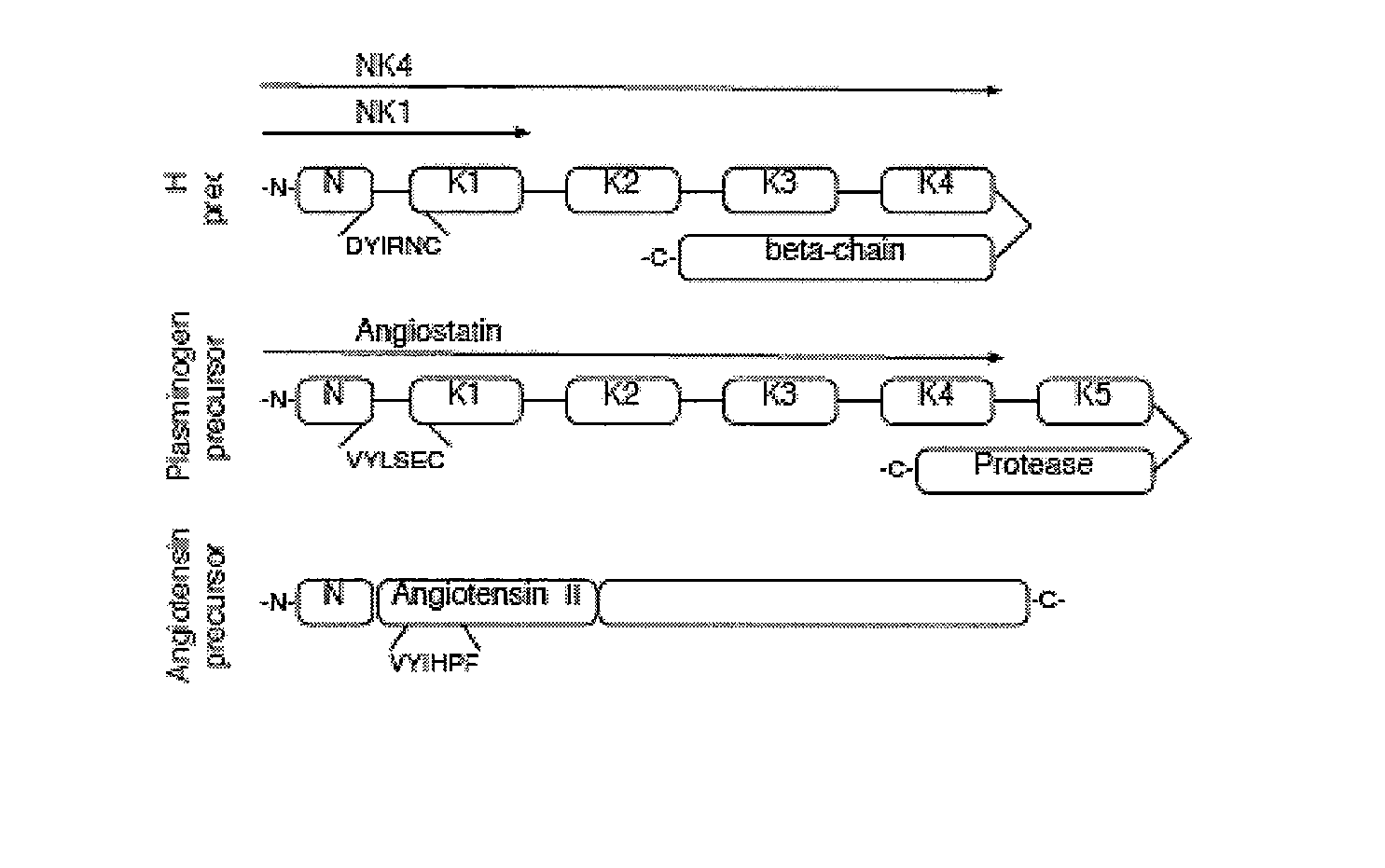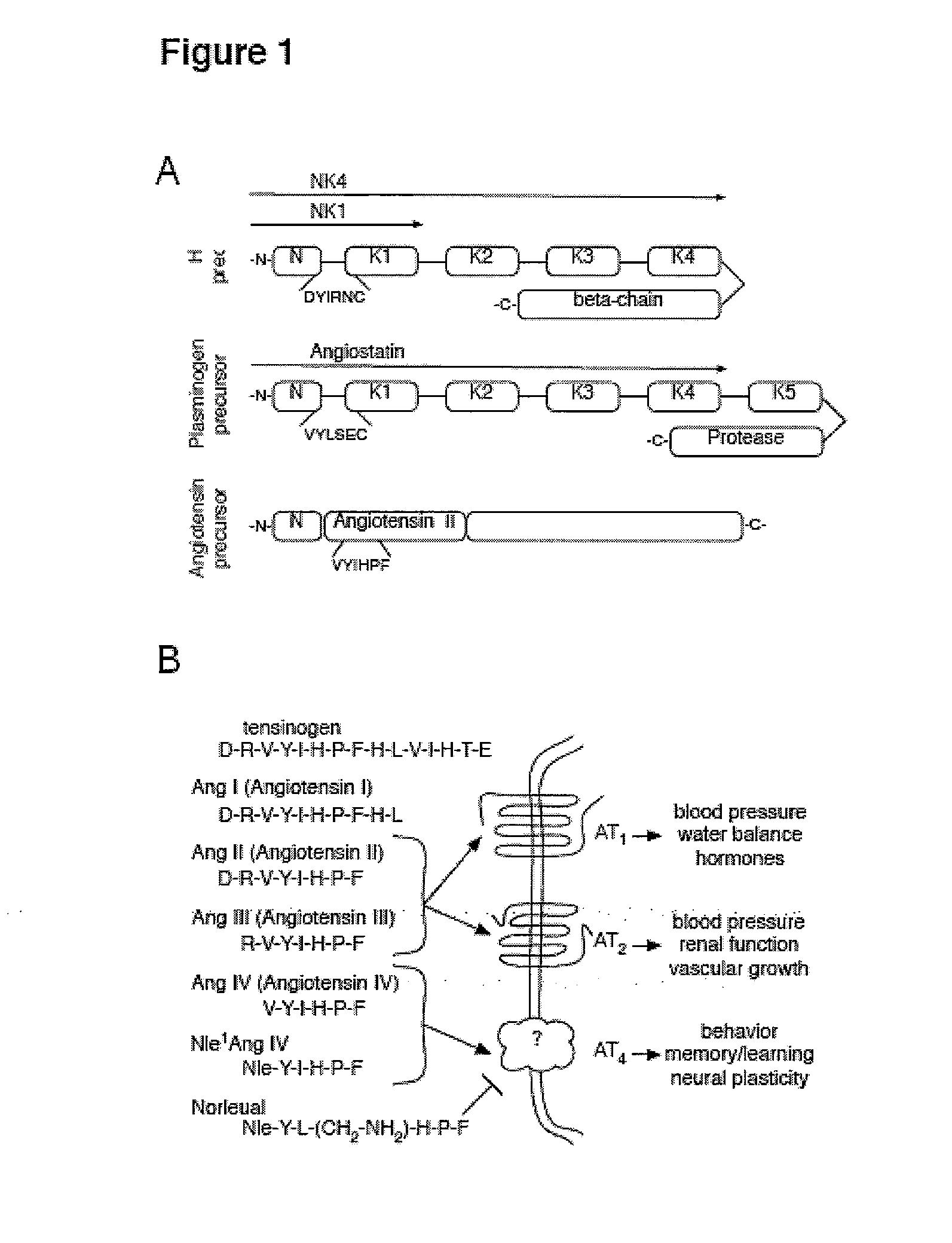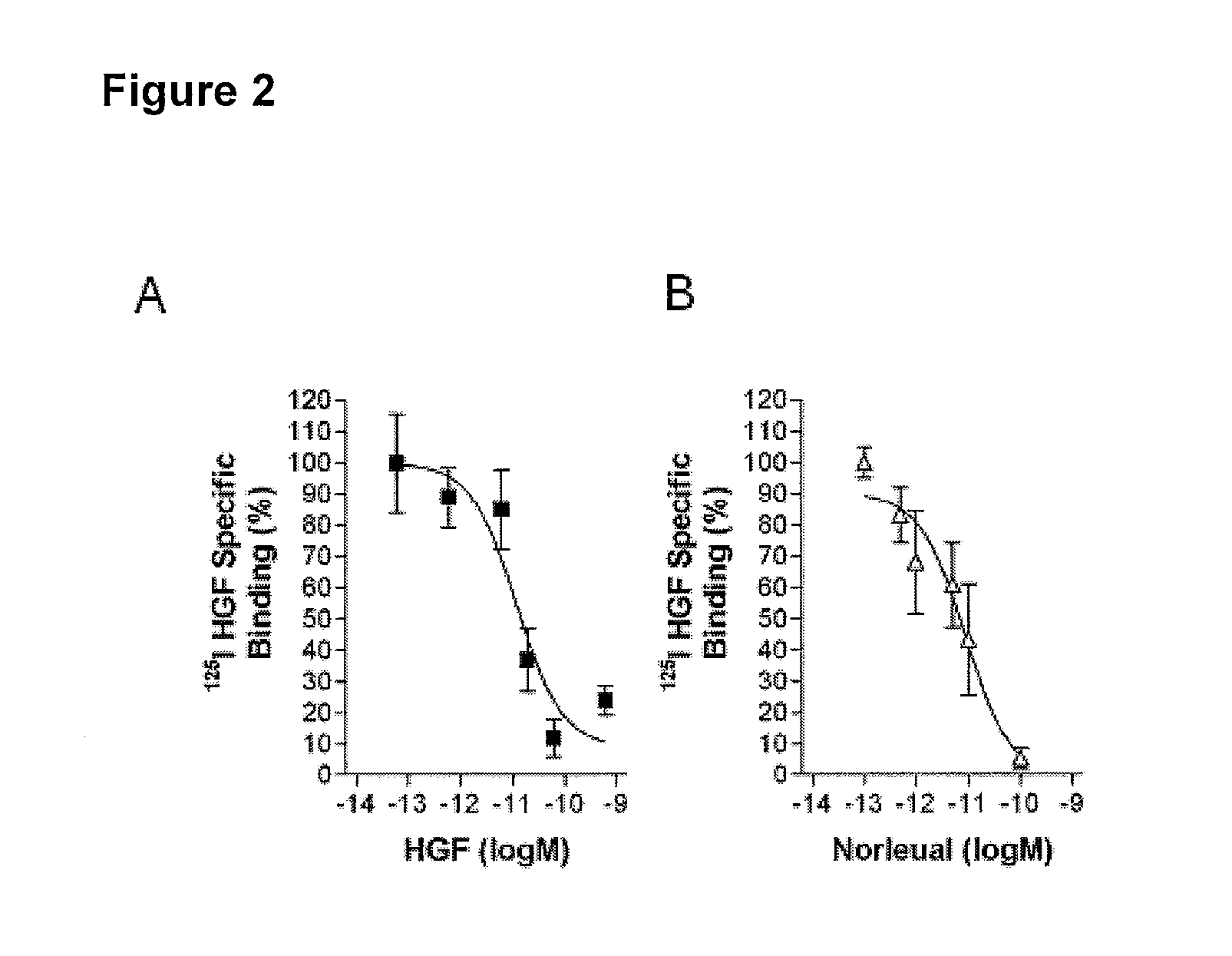C-met receptor regulation by angiotensin iv (AT4) receptor ligands
a technology of c-met receptor and angiotensin iv, which is applied in the direction of angiogenin, drug composition, peptide, etc., can solve the problems of difficult reconciliation, unclear molecular identity of the target at4 /sub>receptor that mediates a number of at4 biological activities, and certain health conditions
- Summary
- Abstract
- Description
- Claims
- Application Information
AI Technical Summary
Benefits of technology
Problems solved by technology
Method used
Image
Examples
example 1
Materials and Methods
[0193] This Example describes materials and methods used in the Examples that follow and also in the generation of data for FIGS. 1-19; additional detail regarding experimental procedures and results can be found above under “Brief Description of the Drawings”.
[0194] Compounds. Norleual (Compound 2, SEQ ID NO:43) was synthesized by Syngene (Bangalore, India) and purified by reverse phase HPLC. HGF (SEQ ID NO:83) was purchased from R&D systems (Minneapolis, Minn., USA).
[0195] Antibodies. Antibodies specific for c-Met (SEQ ID NO:84), Gab1, and phospho-tyrosine were purchased from Upstate Biotechnology Inc. (Lake Placid, N.Y., USA). Anti-phospho-tyrosine, HAM1676, was purchased from R&D systems. Phospho-Akt- and Erk-specific antibodies were purchased from Cell Signaling (Danvers, Mass., USA). GAPDH-specific antibody was purchased from Biodesign (Saco, Me., USA).
[0196] Cell culture. Cell lines HEK293, MDCK, B16-F0 and B16-F10 (all available from ATCC, Manassas, ...
example 2
The Angiotensin-Like Factor Norleual Competes with HGF for Binding to the C-Met Receptor
[0207] This Example shows that the AT4 receptor antagonist, Norleual (Compound 2, SEQ ID NO:43, [Nle-Y-L-Ψ-(CH2—NH2)—H—P—F], Davis et al., 2006 Neuroscience. 137: 1369) competed with HGF for binding to c-Met on cell surfaces and in a cell membrane. Materials and methods were as described in Example 1. In separate tests of unlabeled competitors, both Norleual and HGF competed with 125I-HGF for high affinity binding to mouse liver plasma membranes (FIGS. 2A, 2B). The IC50 values for Norleual and HGF were 3.1±2.1 pM and 29.4±14.7 pM (mean ±SEM, n=3), respectively; the latter value was similar to that reported previously (Higuchi et al. 1991 Biochem. Biophys. Res. Commun. 176: 599-607). To further test the hypothesis that Norleual interacted with the c-Met system, 125I-Norleual was bound to HEK293 cell membranes alone or in the presence of HGF or Norleual. Both ligands competed for 125I-Norleual spe...
example 3
Inhibition of HGF-Induced Cell Scattering by an Angiotensin-Like Factor
[0209] To explore the physiological significance of the angiotensin-like factor Norleual's ability to depress c-Met signaling, Norleual's effect on HGF induced cell scattering of Madin-Darby canine kidney (MDCK) cells was assessed with the coverslip assay (Miao et al., 2003 J. Cell Biol. 162: 1281-1292). See Example 1 for other Materials and Methods. Norleual inhibited HGF-induced MDCK cell scattering, yielding a response that was similar to controls (FIG. 8A).
PUM
| Property | Measurement | Unit |
|---|---|---|
| Fraction | aaaaa | aaaaa |
Abstract
Description
Claims
Application Information
 Login to View More
Login to View More - R&D
- Intellectual Property
- Life Sciences
- Materials
- Tech Scout
- Unparalleled Data Quality
- Higher Quality Content
- 60% Fewer Hallucinations
Browse by: Latest US Patents, China's latest patents, Technical Efficacy Thesaurus, Application Domain, Technology Topic, Popular Technical Reports.
© 2025 PatSnap. All rights reserved.Legal|Privacy policy|Modern Slavery Act Transparency Statement|Sitemap|About US| Contact US: help@patsnap.com



